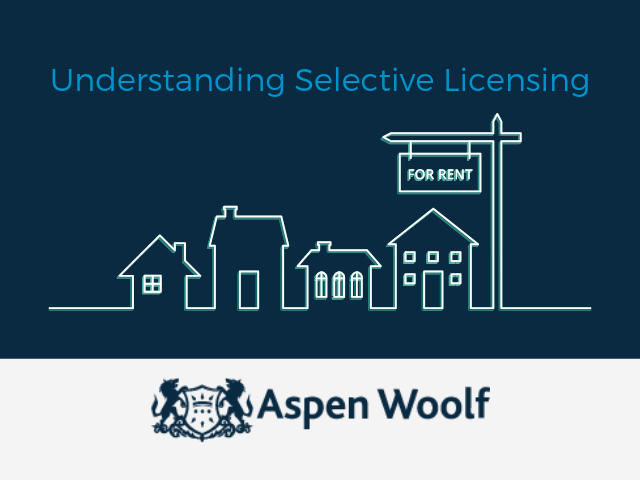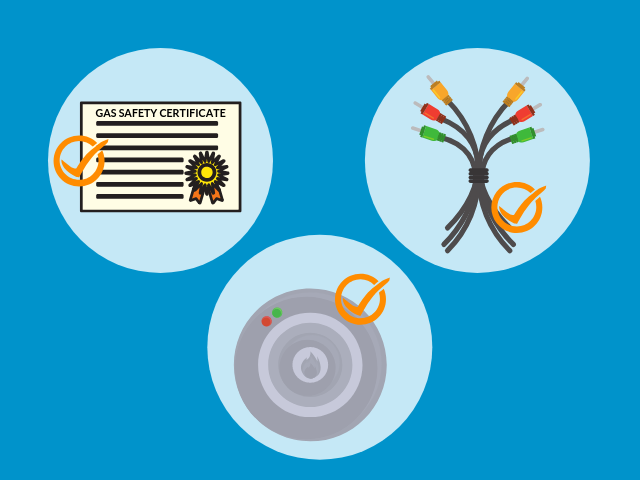Selective Licencing: What Landlords Need to Know

With UK house prices reaching record rates and rents on the rise, now is a great time to be a landlord. And a buy-to-let property can be highly profitable. Nevertheless, one thing landlords need to be aware of is selective licensing. With 1 out of 4 boroughs currently running schemes, you need to be aware if having a licence applies to you.
In recent years landlords have experienced many changes in the buy to let market, facing new rules and regulations. Before investing in a buy-to-let property it’s essential to fully understand regulations to make sure you stay within the law and avoid any penalties.
For that reason, we take a closer look at what selective licensing means for landlords and their buy-to-let properties and examine why it doesn’t have to mean you are left out of pocket, especially if you choose your investment areas wisely.
What is Selective Licensing?
Selective Licensing is a landlord licencing scheme introduced within the Housing Act 2004. It means that if you own a buy-to-let property you may need to apply to the local council for a licence to be a landlord.
A licence requires that a landlord show they are a suitable person and show that the property they have to rent is actually fit to be lived in. This type of property licensing usually only applies in designated areas. Individual landlords will need to check with their local authority if their property is within the designated area. Most councils will have an online property licence checker that allows you to do a landlord licence check.
Does Selective Licencing Apply to all Landlords?
A selective licence is not required for all landlords. If you own a house, you are a private landlord and are in a designated area you will need to apply. If you are a housing association, own a holiday let, are a university with its own accommodation or have business premises that are occupied by members of your family, you don’t need to apply.
Is Selective Licensing Mandatory?
Only in specified selective licensing areas, it is a landlord’s legal obligation to acquire a licence. Failing to do so can result in heavy penalties. You may find that your property is suddenly in an area that the local council has designated with a selective licensing scheme. Regardless of whether you’ve been operating as a reputable business for a number of years. In this case, you will still need to apply for a licence. The upshot is that the rules can vary for different areas. Therefore, it’s worth checking whether you fall under the conditions that mean you need to get a licence.
You may be wondering what are the exemptions to selective licensing. Any house occupied by the owner and up to two lodgers (where the accommodation and an amenity such as a toilet, bathroom, kitchen or living room are shared) are exempt. Any resident landlord with three or more lodgers in designated selective licensing areas will need a licence because the property is considered a House in Multiple Occupation (HMO).
What Does Selective Licensing Mean?
A selective license is intended to improve the management of privately rented properties and contribute to positively improving neighbourhoods. Councils may introduce selective licensing in areas where there are one or more of these issues:
- A low demand for houses
- Problems with antisocial behaviour or high levels of crime
- Houses in poor condition
- people only renting houses for a short period of time.
- A lack of basic necessities
For councils, it can be about ensuring that landlords provide adequate facilities for their tenants. Applying for a licence means that you need to have things like your gas safety certificate, smoke alarms and electrical equipment and wiring that is in good order.
How Long Does a Selective Licence Last?
If you are in a selective licensing area, your application will last for 5 years before you need to think about renewing it. Once an area has been designated, landlords must apply for a licence within three months before the designation comes into force.
Landlords within that area will need to complete an online application form and provide certificates of safety like gas and electrical.
What are the Benefits of Selective Licencing?
For councils, a landlord licensing scheme is about ensuring that landlords provide adequate facilities for their tenants. There are plenty of horror stories in the media where disreputable landlords have not only left their properties in states of disrepair but put the health of residents at risk as well. If you’re a reputable landlord, ensuring these bad eggs are weeded out of the system can be beneficial for both you and potential tenants.
Selective licensing aims to improve the management of privately rented properties. While also positively impacting neighbourhoods in the following ways:
- Making the area more desirable to live in
- Make people want to stay in the area for longer
- Reduce the length of time houses are empty
- Increase property values
- Reduce crime and antisocial behaviour
- Increase professionalism of privately rented property market
How Much is a Selective License?
The cost of selective licensing varies region to region as can the areas that are using the licensing. In regions like London, you may be paying well over £1,000 per property licensing. Whereas in Liverpool you could be looking at £400. Selective licensing Leeds costs £825 for each property or unit of accommodation. Meanwhile selective licencing in Nottingham is similar, costing £890 for each property.
If you are in a selective licensing area and fail to apply and register your property with the local council there will be consequences. You could be liable to a fine of up to £30,000. If you are convicted, you may be prevented from holding a licence in the future.
What landlords Need to Know about Selective Licencing
It’s unlikely that selective licensing is going to disappear anytime soon and may well increase. Because of its nature, however, it doesn’t have to be the drain on resources that some landlords have found. Choose the right locations and make your investments wisely. Hence it’s likely you won’t have to worry about a selective license at all. At least not for the immediate future.
It pays to work with a property agent that knows what they are talking about. Even more so, when it comes to the selective licensing scheme. At Aspen Woolf, we handle a wide range of properties from London and Manchester to Luton and Leeds. So understanding the licensing requirements in each city.
The truth is that property investment, especially in the buy to let market, is still highly profitable. First of all, levels of rentals and tenancies are at an all-time high. Secondly, people are always looking for great accommodation in decent areas. If you make good choices on which property you invest in there is still plenty of profit to be made. Additionally, attracting the right tenants, combined with the rising value of your home, should help as well.
If you’d like to find out how Aspen Woolf can help with your future buy to let property purchase, contact our expert team today.


